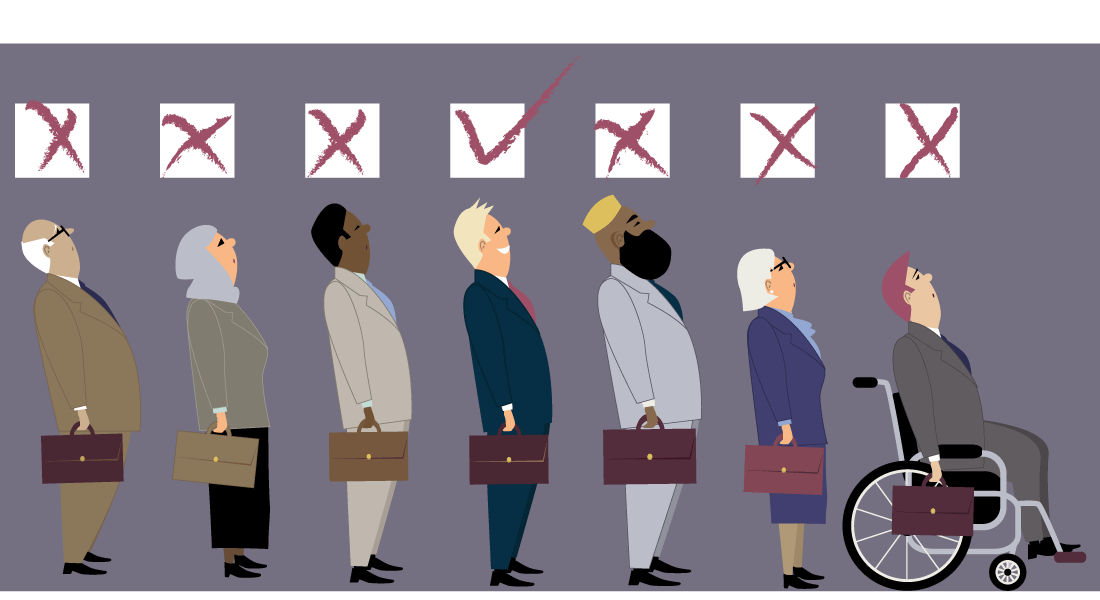Discrimination at work is not just a legal issue; it’s a human one that affects morale, productivity, and the overall health of an organization. From racial slurs to unequal pay, discrimination can manifest in various harmful ways. Understanding how to recognize and address it is crucial for creating a safe and inclusive working environment. This article will guide you through the signs of workplace discrimination, recent real-life examples, and actionable steps for addressing these critical issues.
Signs of Discrimination in the Workplace
Discrimination can be subtle or overt. Signs may include exclusion from meetings or projects, lack of promotion despite qualifications, unfair performance reviews, or derogatory comments about race, gender, age, or disability. Recognizing these signs is the first step toward creating a fair workplace.
Recent Examples of Workplace Discrimination
Race Discrimination
In a troubling case recently reported, a Insurance Auto Auctions, Inc. yard attendant in Fremont, California, was subjected to racial slurs, including the “n-word,” up to 15 times a day. This verbal harassment happened openly in front of the general manager, who failed to act, leaving the Black employee feeling he had no choice but to resign. This example starkly highlights how unchecked discrimination can permeate an organization. (Case No. 4:24-cv-06848)
“Let me be clear: there is no workplace, regardless of locale, where the use of racial slurs is acceptable,” said EEOC San Francisco District Director Nancy Sienko. “Once an employer lets that standard slip, not only are you giving permission for an unprofessional, unproductive and hateful work environment, you are violating the law.”
Disability Discrimination
A company driver at Mail Hauler Trucking, LLC. in South Dakota was dismissed due to his physical impairment despite successfully performing his job duties. His unusual gait—a result of his condition—led to his unjust termination, demonstrating a blatant disregard for the legal protections afforded to individuals with disabilities. (Civil Action No. 1:24-cv-01020-ECS)
“The ADA prohibits employers from terminating employees because of their disability or discriminating against employees because of misperceptions that they cannot perform the job because of a disability,” said Gregory Gochanour, regional attorney of the EEOC’s Chicago office.
Sexual Harassment
At a Long Island car dealership, Garden City Jeep Chrysler Dodge, LLC and VIP Auto Group of Long Island, Inc., female employees endured inappropriate touching and sexual comments from an inventory manager. Despite complaints to management and HR, the harassment continued unchecked, forcing some employees to quit. This case underscores the critical need for effective interventions and accountability at every level of management. (Case No. 2:24-cv-06878)
“Whether a restaurant, car dealership or other business, no employer should ignore sexual harassment, let alone condone or encourage it,” said Kimberly Cruz, regional attorney for the EEOC’s New York District Office.
Pregnancy Discrimination
At Castle Hills Master Association Inc., and parent companies Bright Realty LLC, Bright Industries LLC, and Bright Executive Services LLC, a pregnant employee diagnosed with placenta previa, a high-risk condition, was terminated while hospitalized despite notifying her employer of her need for medical leave. The Castle Hills Master Association and property management companies involved refused to accommodate her, highlighting a distressing gap in understanding pregnancy-related employment rights. (Civil Action No. 4:24-cv-00871)
Pay Discrimination
AccentCare in Pennsylvania was sued for paying female Licensed Practical Nurses less than their male counterparts for equal work despite the women’s superior qualifications. After a female LPN complained, she was fired, showcasing retaliatory practices that exacerbate gender-based pay disparities. (Case No. 3:24-cv-01646-RDM)
“Employers cannot pay female employees less than their male colleagues because of sex,” said Debra Lawrence, the EEOC’s Regional Attorney in Philadelphia. “Retaliating against an employee who raises these concerns and seeks to correct the disparity further exacerbates the legal violation.”
Legal Rights and Responsibilities in Addressing Discrimination
Employees have the right to a workplace free of discrimination. The law provides several avenues to address discrimination, including filing complaints with the Equal Employment Opportunity Commission (EEOC) and hiring. Employers are legally required to investigate allegations and take corrective action when necessary.
Steps to Take if You Witness or Experience Discrimination
- Document the Incident:
- Record dates, times, locations, and details of the discriminatory behavior.
- Report the Incident:
- Use your company’s reporting mechanism or approach your HR department directly.
- Seek Support:
- Contact a trusted colleague, mentor, or employee resource group for guidance and support.
- Consider Legal Action:
- If internal resolution is inadequate, consider contacting an experienced workplace discrimination lawyer for further assistance.
The Role of HR and Management in Preventing and Addressing Discrimination
HR and management play a pivotal role in fostering an inclusive environment. They must act swiftly on complaints, ensure policies are enforced, and model respectful behavior. Regular training sessions and open dialogues can also help reinforce the company’s commitment to a productive and inclusive workplace.
Employers seeking to ensure compliance with discrimination laws can benefit significantly from consulting experienced employment discrimination lawyers. These legal professionals offer valuable guidance on navigating complex regulations, thereby assisting in the proactive prevention of discriminatory practices in the workplace. By working closely with a lawyer, employers can gain insights into potential vulnerabilities within their current policies and procedures and receive tailored advice to foster a legally compliant and respectful work environment. This proactive approach not only aids in legal compliance but also strengthens the organization’s commitment to equality and fairness.
Creating an Inclusive Workplace Culture
An inclusive culture celebrates diversity and fosters a sense of belonging. Encourage conversations about diversity, recognize cultural differences, and celebrate various backgrounds. Understandably, employers might hesitate to engage in difficult conversations about diversity, inclusion, and compliance, fearing it could open Pandora’s box of unforeseen challenges. However, addressing these topics head-on is crucial for fostering a workplace where all employees feel valued and heard. Avoiding these conversations can perpetuate systemic issues and hinder the organization’s growth and morale. By embracing these discussions, leaders can uncover valuable insights into the employees’ perspectives, identify areas for improvement, and initiate meaningful change. It’s essential to approach these dialogues with an open mind, active listening skills, and a commitment to genuine, positive transformation. While challenging, these conversations ultimately nurture a more cohesive, productive, and respectful workplace culture. Leadership should exemplify these values, ensuring they trickle down throughout the organization.
The Ongoing Effort to Eliminate Discrimination
Eliminating discrimination requires persistent effort and commitment from everyone within an organization. By recognizing the signs, understanding your rights, and taking actionable steps, you can contribute to a healthier, more inclusive workplace. Start today by reviewing your organization’s policies and fostering open discussions about diversity and inclusion. Together, we can create a work environment where everyone is respected and valued.










